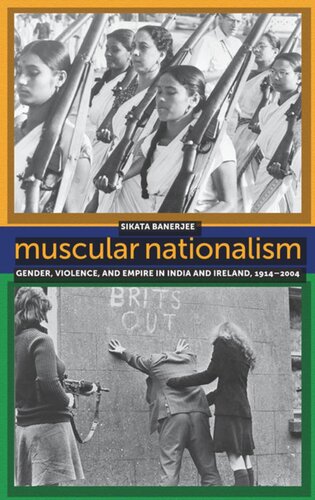

Most ebook files are in PDF format, so you can easily read them using various software such as Foxit Reader or directly on the Google Chrome browser.
Some ebook files are released by publishers in other formats such as .awz, .mobi, .epub, .fb2, etc. You may need to install specific software to read these formats on mobile/PC, such as Calibre.
Please read the tutorial at this link: https://ebookbell.com/faq
We offer FREE conversion to the popular formats you request; however, this may take some time. Therefore, right after payment, please email us, and we will try to provide the service as quickly as possible.
For some exceptional file formats or broken links (if any), please refrain from opening any disputes. Instead, email us first, and we will try to assist within a maximum of 6 hours.
EbookBell Team

4.3
58 reviewsA particular dark triumph of modern nationalism has been its ability to persuade citizens to sacrifice their lives for a political vision forged by emotional ties to a common identity. Both men and women can respond to nationalistic calls to fight that portray muscular warriors defending their nation against an easily recognizable enemy. This “us versus them” mentality can be seen in sectarian violence between Hindus and Muslims, Tamils and Sinhalas, Serbs and Kosovars, and Protestants and Catholics. In Muscular Nationalism, Sikata Banerjee takes a comparative look at India and Ireland and the relationship among gender, violence, and nationalism. Exploring key texts and events from 1914-2004, Banerjee explores how women negotiate “muscular nationalisms” as they seek to be recognized as legitimate nationalists and equal stakeholders in their national struggles.
Banerjee argues that the gendered manner in which dominant nationalism has been imagined in most states in the world has had important implications for women’s lived experiences. Drawing on a specific intersection of gender and nationalism, she discusses the manner in which women negotiate a political and social terrain infused with a masculinized dream of nation-building. India and Ireland—two states shaped by the legacy of British imperialism and forced to deal with modern political/social conflict centering on competing nationalisms—provide two provocative case studies that illuminate the complex interaction between gender and nation.